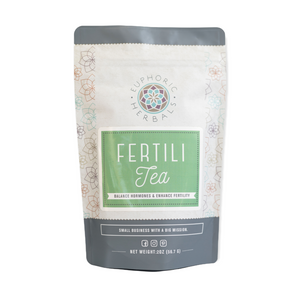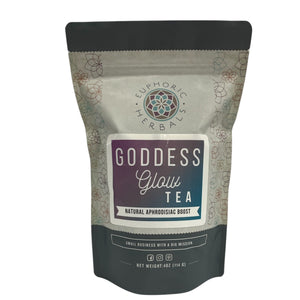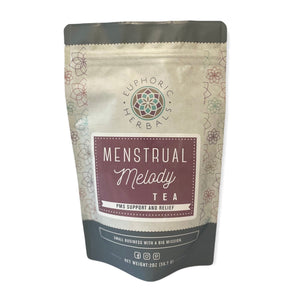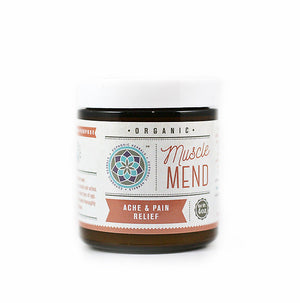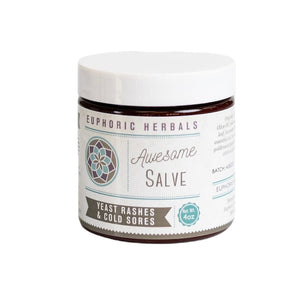Chicory root has a fascinating history as both a medicinal herb and a caffeine-free coffee substitute. It has been used for thousands of years, entering into different herbal traditions like Ayurvedic medicine and western herbalism.
The benefits of chicory root are somewhat similar to those of dandelion root, but it still has its own unique properties, especially when it comes to digestive support.
Here's more about chicory, what it does for your body, and how to make your own herbal "coffee".
What is Chicory Root?
Chicory (Cichorium intybus) is a plant in the daisy family, which makes it a relative of many other herbs like dandelion, chamomile, and echinacea.
It's often compared to dandelion as far as growth habit is concerned because it develops a deep tap root and grows a rosette of leaves when it emerges from the ground. However, the similarities end there because chicory goes on to produce tall flower stalks (2-5 feet) with small blue flowers.
Common chicory is native to regions in Europe and Asia but is now naturalized all over the world. Like many other herbs, it's often considered a weed in spite of its many beneficial uses.
The leaves of chicory plants are edible, and the long, thin roots can be harvested as a medicinal herb.
One of the biggest uses for chicory root throughout history is as a coffee substitute or additive. It was particularly used during the American Civil War to stretch out coffee supplies and eventually became a staple beverage in New Orleans.
There are also some culinary varieties of chicory- like endive (Cichorium endivia)- but the common variety remains the best for herbal use.
Benefits of Chicory Root
Herbal Coffee Substitute

Coffee isn't strictly unhealthy, but it's no secret that our fast-paced culture has a caffeine problem.
In small amounts, caffeine provides energy and can make you feel more focused and in a better mood. However, in large amounts, it can cause jitteriness, insomnia, headaches, anxiety, and addiction-like symptoms.
Even decaf coffee can be a problem because of the chemicals used to strip out the caffeine. (1)
Chicory root is one of the best caffeine-free, chemical-free coffee substitutes if you want to eliminate or cut back on coffee/caffeine. When roasted, it has a rich, coffee-like flavor that many other coffee substitutes lack.
You can use chicory root on its own to make "coffee" (recipe coming later on), or you can mix it in with real coffee to cut back on caffeine without completely giving up on coffee beans.
Liver Tonic
Besides being used in place of coffee, one of the top benefits of chicory root is liver support.
The root contains bitter compounds that naturally stimulate bile production in the liver. Proper bile production is important for both a healthy digestion, since it helps with the breakdown of fats, and detox, since it helps to carry waste products and toxins out of the body.
Chicory root has been considered a liver-supportive herb for centuries and was even given the name "friend of the liver" by the second-century physician known as Galen.
Modern research has also found that chicory extract may help to reduce oxidative stress and protect cells from damage in the liver. (2)
Promotes Detoxification
We've already talked about one way chicory root supports detoxification: by stimulating bile production in the liver to help with waste removal.
Chicory also has action on the digestive system and the kidneys to further help toxins make their way out of your body.
The first happens because chicory root has mild laxative properties. It isn't a strong laxative (like senna or cascara sagrada), but it can help your digestive system keep moving properly. This ensures that toxins are eliminated from your body instead of getting stuck in your colon (and potentially re-absorbed).
Chicory root also helps to flush toxins out of the kidneys by acting as a diuretic. Diuretics stimulate urine flow, which in turn keeps fluid and toxins flowing out of your kidneys.
Supports Gut Health & Digestion

The benefits of chicory root for your liver are also supportive for your digestion. As mentioned, bile is needed to help your body digest fats, so producing the right quantity of it is key for healthy digestion.
In addition to this, chicory root is an excellent source of fiber, particularly a type known as inulin that acts as a prebiotic to feed the good bacteria in your gut. (3)
Studies have found that inulin can help relieve constipation, may calm gut inflammation, and may help inhibit the growth of harmful gut bacteria. (4)(5)
Keep in mind that in order to get the fiber from chicory, you would need to consume the root whole or powdered. Steeping it to make tea or "coffee" will not provide you with any fiber/inulin.
Contains Antioxidants
Chicory root contains antioxidants known as polyphenols that help to support your health in general and may reduce inflammation in your body.
Chronic inflammation is thought to be a root cause behind many different diseases, so reducing it is key if you want to stay healthy as you get older. Consuming antioxidants through herbs and other plants is one of the best ways to do this.
At least one study has confirmed that chicory coffee does have anti-inflammatory effects. (6)
Food and Forage Source
Chicory is probably most powerful when used as a medicinal herb and most popular as a coffee substitute, but it can also be more simply used as an edible plant.
The leaves of chicory are edible and rich in vitamin C. They can be harvested in early spring (much like dandelion greens) and eaten fresh or cooked like spinach. There is a bitterness to the leaves, but you can harvest them small or simmer them in water to reduce it.
The skinny roots can be cooked like parsnips, although you would need to harvest quite a few of them to get a decent meal.
Chicory has also been grown as a forage crop for livestock in the past. The leaves don't dry well, but it could be cut and fed fresh to various types of farm animals.
Chicory Root "Coffee" Recipe

If you want to get the benefits of chicory root, nothing is easier than to make it into a cup of alternative coffee.
Before you do so, make sure the root is roasted if you want a flavor that is as close to coffee as it gets. You can do this by simply buying roasted chicory root, or you can roast your own slowly in the oven until it's dark brown and fragrant.
Ingredients:
- 1 tablespoon roasted chicory root
- 1 cup of water
- Optional additions like milk, sweetener, powdered cinnamon, etc.
Instructions:
- Heat the water just to a boil.
- Put the roasted chicory root in a French press, teapot, or mug and pour the hot water over it.
- Cover and let steep for at least 5-10 minutes. Steep longer for a richer and more bitter drink.
- Strain out the chicory root.
- Add a sweetener, if desired, and any other additions. Enjoy!
Note: You can adjust how strong your "coffee" is by adding more or less chicory root. Some people also enjoy using equal parts chicory root and dandelion root for a strong detox drink.
Precautions
Chicory root has few precautions, but it does have the potential to cause an allergic reaction, particularly if you are allergic to members of the daisy family (including ragweed).
Also, keep in mind that chicory does help your body to detox and has mild laxative properties. If you take too much of it at once, you may find yourself with detox symptoms or an upset stomach.
Large amounts of chicory root are not recommended during pregnancy.
Enjoying the Benefits of Chicory Root
Whether you want to replace a coffee habit or are looking for natural detox support, chicory root is definitely an herb to look into. It helps both your liver and digestion, all while providing a familiar bitter taste as a hot drink.
Don't forget you can also use it in whole or powdered form to add gut-boosting fiber to your diet.
Disclaimer: This post is for informational purposes only. It does not constitute medical advice and should not be substituted for medical advice. Please consult your health care provider, herbalist, midwife, or naturopathic physician before taking herbs, supplements, etc. Here's the link to our full disclaimer.






















































